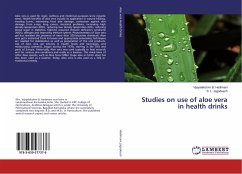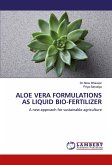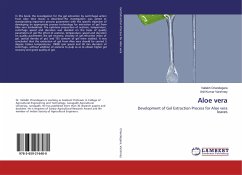Aloe vera is used for vigor, wellness and medicinal purposes since rigvedic times. Health benefits of aloe vera include its application in wound healing, treating burns, minimizing frost bite damage, protection against skin damage from x-rays, lung cancer, intestinal problems, increasing high density lipoprotein (HDL), reducing low density lipoprotein (LDL), reducing blood sugar in diabetics, fighting acquired immune deficiency syndrome (AIDS), allergies and improving immune system. Phytochemistry of aloe vera gel has revealed the presence of more than 200 bioactive chemicals. Aloe vera gel is extracted from its leaves and appropriate processing techniques are needed for stabilization as well as preparation of the end products. Use of Aloe vera gel extracts in health foods and beverages, and moisturizing cosmetics, began during the 1970s, starting in the USA and parts of Europe. Historically, Aloe vera was used topically to heal wounds and for various skin conditions,and orally as a laxative. The dried latex of other Aloe species, such as Aloe ferox Miller (Cape aloe or bitter aloe) has also been used as a laxative. Today, Aloe vera is also used as a folk or traditional remedy.
Hinweis: Dieser Artikel kann nur an eine deutsche Lieferadresse ausgeliefert werden.
Hinweis: Dieser Artikel kann nur an eine deutsche Lieferadresse ausgeliefert werden.








